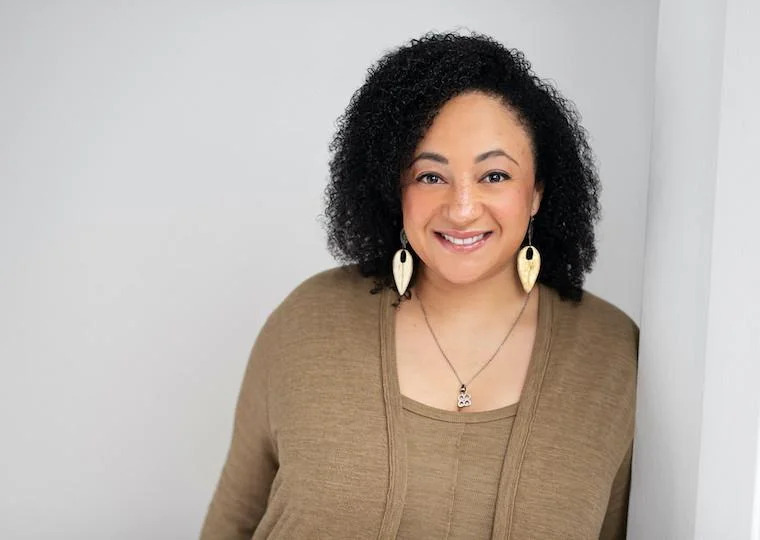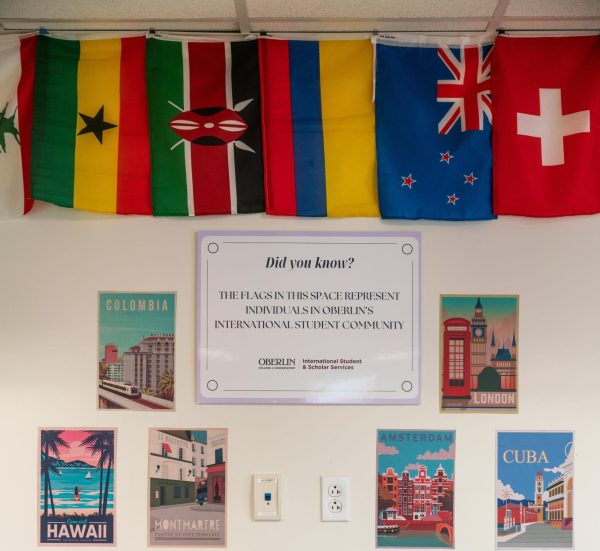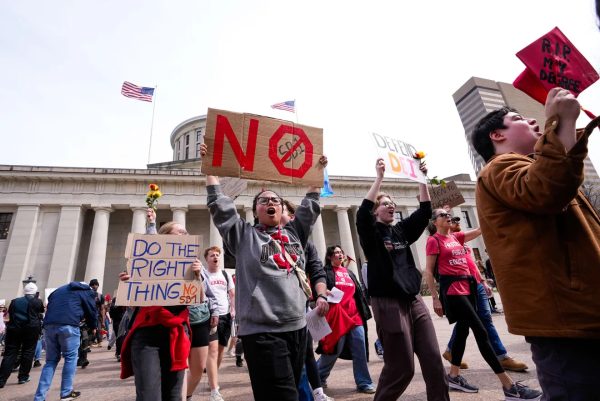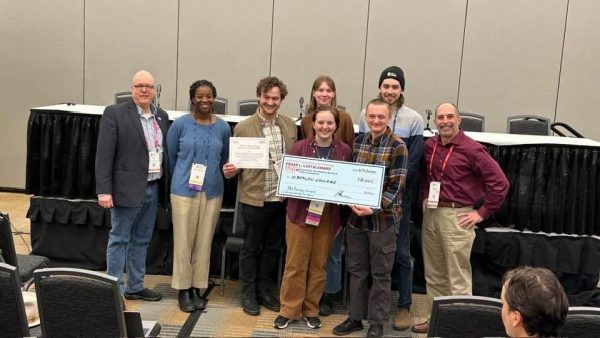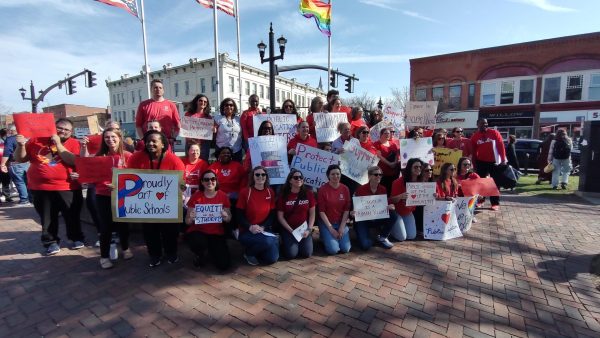OTC: Candice Raynor Professor, Director and Faculty in Residence of the Afrikan Heritage House
Candice Raynor is an Africana Studies professor at Oberlin College. Outside of her work in the department, she works within the Afrikan Heritage House with Black students on programming and other events centered around Black culture and history.
This article has been edited for length and clarity.
What are some of the responsibilities of the director and faculty in residence of the Afrikan Heritage House?
Well, this is my seventh year at Oberlin and my sixth year as director and faculty in residence. I was a fellow of Africana teaching and housing in my first year — the first and last fellow. Really, my job is about building community and maintaining that fostering of community among Black students at Oberlin, and I do that by supporting the department’s curricular aspects and community. A-House is sort of co-curricular in that it provides support and is a resource for anyone interested in learning about Africana Studies and culture. So our programming provides an additional way, apart from the classes in the department, to learn about Africana Studies. Then there’s also the goal of providing a safe space for Black-identifying students on campus and also giving an opportunity for allyship to develop with non-Black students. So I work on how to do all of that, how to be in this space, and how to support Black people.
What does programming look like within the Afrikan Heritage House?
What that looks like is finding a connection within the community and building off of that. This also includes working with other groups who’ve also dealt with oppression in some form and working in solidarity. It’s also through a lot of retention work — recruiting and retention. Recruiting starts with showing prospective students what being Black here can look like and what space you can have and hold. It gives an inside look at what the Black community here looks like and how much it means to a lot of students, and we get positive feedback from prospective students every year. Then with retention, it starts with not just keeping Black students here but also helping them be successful all four years. It’s giving support to students who aren’t as comfortable asking for help or don’t know where to go and making sure students don’t fall through the cracks. It’s kind of an extra layer of support as well. And that’s for students who live here and for students who don’t — I support students, people who are residents of A-House, and people who aren’t.
How does working as an educator in Africana Studies promote activism in your students and the community within the Afrikan Heritage House?
I think whether you’re Black or you’re not, learning about the history of Black folks, as well as educating yourselves in the present circumstances, helps you come up with solutions. There are examples in the past of non-Black people who have been members of Black movements and who have done the work, and so learning about Black history helps you see where you fall into this and the work that you need to do. It also helps you understand why people feel the way they feel and connects you with those people to create ideas on how you can be the change. Whether that’s through formal activism work like organizing or through being more radical, you’re still enacting change, and that stems from learning.
There is also a level of Africana Studies that is just applying your knowledge to whatever field you go into. I tell my students that all the time because I get students who aren’t Africana Studies majors in my classes. I always highlight taking what you learn here because you never know the difference youʼll make and what rooms you’re gonna be in. For example, if you’re not Black, you’re gonna be in rooms where people could be talking about Black people in a negative light, but if you are armed with the knowledge, you can say no; you can explain why someone is being ignorant. That can really make a change. For any of my students, I want them to be able to lead change with the knowledge taught in Africana Studies classes. I want them to be armed with the knowledge that they can pass in their professional life. Even if you don’t see yourself leading a career centered around activism, there are so many ways to enact change.
How do you think activism affects the Africana Studies program?
Being an educator can be a form of activism, depending on how you do it. In history, even just the creation of Black studies programs came about because of activism. Black students advocate for learning about themselves and say, “Everyone should learn about what we’ve been through,” and “How can we solve these problems that we’re all dealing with as a community?” It’s why it’s disturbing to see pushback when it comes to critical race theory. Kids should be learning all of what happened, all of American history and world history, so that future generations solve and address the problems. How can they do that if they’re not educated on them, if they don’t know where they come from?
So that makes education in itself a form of activism. In my critical race theory class today, we were talking about how even as a researcher, you can make a difference in the things that you’re choosing to do research on — how you can shine a light on areas that people aren’t talking about. It’s putting yourself forward in these spaces, and that is also important. So there’s always been activism within education, and they should be taught together — specifically for Africana Studies, too.
What does activism look like for you when working with Black students?
I think a lot of my work ends up being advocacy work. I find myself often speaking, whether it’s to administration or the campus partners, on behalf of Black students, because I act as someone who spends more time with Black students than my coworkers or anybody else on campus. Because of that, I’m able to hear studentsʼ needs and where they need more support. Oftentimes, a big part of my job is not just speaking on behalf of A-House as a program house, but on behalf of a community of which A-House is the center.
My work also involves working with the Black student organizations and often being a part of the conversation around planning events. These events also are a part of advocating for spaces where Black people can come in addition to A-House and make sure there is time for joy — Black joy is also activism. Making sure that there’s a space to celebrate and relax and have fun is also so important. So when we plan and have these events, in a way, that’s a political decision: to take up space and to make space for joy. A lot of Black students are balancing several jobs or balancing several org positions, which is demanding just by itself, and then there’s the added pressure of doing that in a predominantly white space. It’s not always easy to navigate that, so it’s important to have that balance. It’s important to center wellness and to center joy. Audre Lorde once said, “Caring for myself is not self-indulgence, it is self-preservation, and that is an act of political warfare.” I think that sums it up perfectly.


